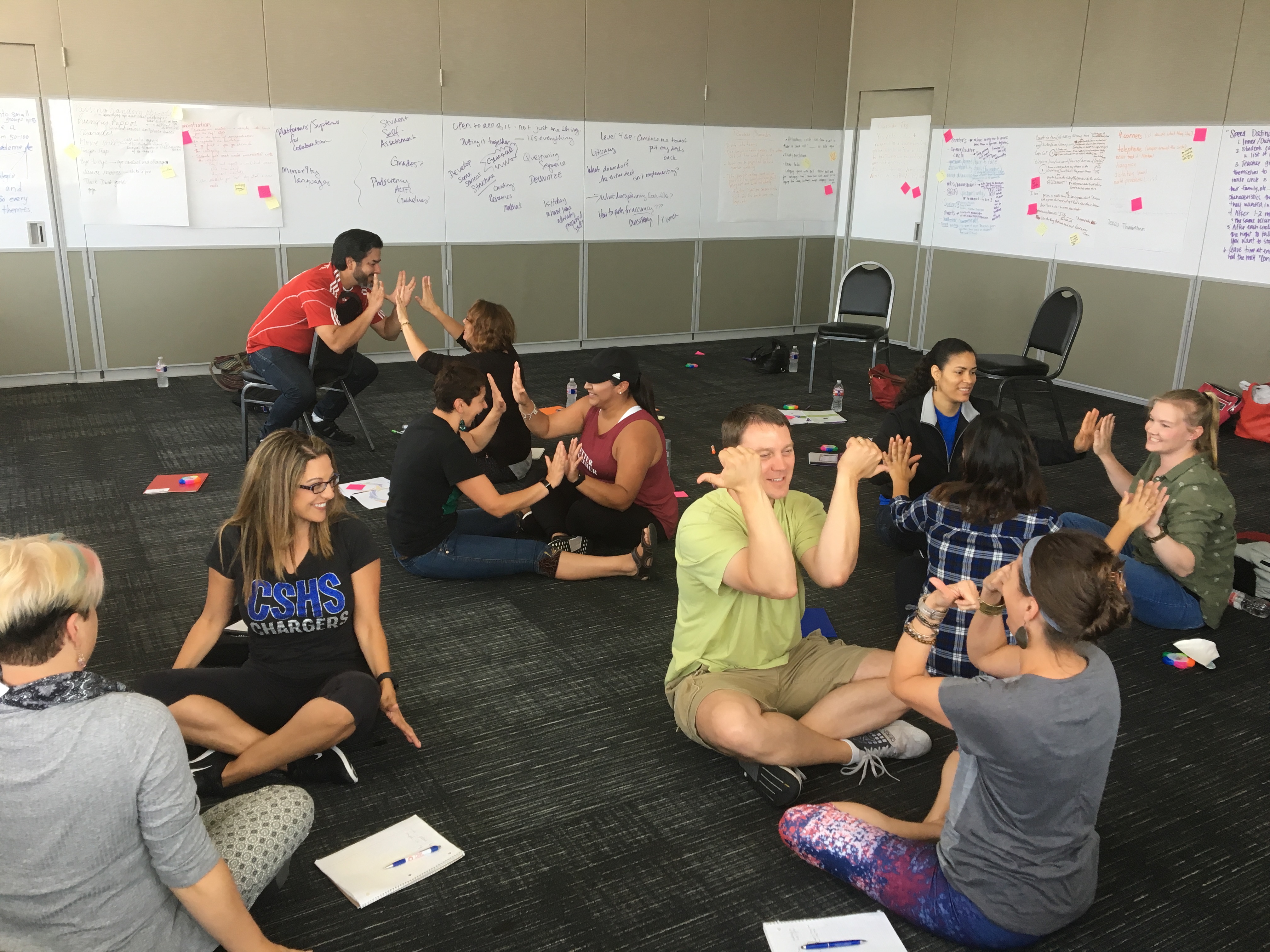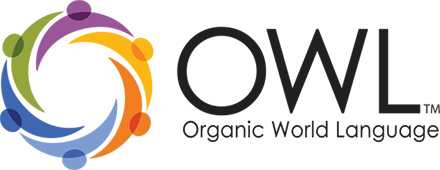
Summary:
Trust your passion. As Darcy has frequently said, OWL is not just about a method; it’s about us as people. Who we are is how we present to our students. We are at our best when we are doing what we are passionate about. To that end, all three of our strands spent the day exploring PPATH, collaborative planning, and leading circles. Our Green Strand was engaged in kinesthetic topic webs, the curriculum triangle, and collaborative planning. The Blue Strand did a consultancy protocol, discussed challenges and successes, played a fun round of question tennis, and did collaborative planning. The Orange Strand did a deep dive into threads and progressions and pushing students to the next level.
Significant Quotes:
“The consultancy protocol gave me the opportunity to contemplate my own practice through the discussion of someone else’s.” –Blue Strand participant
“We beat ourselves up about grading when we should be focused on using something really simple that highlights what students can do” –Orange Strand participant
“Writing the questions at all three proficiency levels has been great because I’ve had the opportunity to practice questioning while getting feedback.” –Green Strand participant
Commentary:
Today was such an inspiring day for me as a teacher. It was amazing to see so many fellow teachers with a genuine passion for what they do. They exemplified their passion by being willing to look critically at themselves and their practice. The most meaningful experience of the day for me was watching participants in the Blue Strand take a deep dive into an essential question: “How can I get my students to be 100% target language?” Through the consultancy protocol, participants were able to explore the topic and refine their essential question to: “How can we create an environment that supports students staying in the L2?” By shifting the question participants shifted the onus of the solution to the teacher: it is the teacher’s responsibility to create the right environment. This new essential question simultaneously created a role for students: once the right environment has been created, students much have ownership in it. Watching teachers reach this conclusion together via the consultancy protocol was an amazing experience. Just as changes in our classroom are most meaningful and effective when they involve giving students ownership, workshops such as this bootcamp are at their best when they are giving teachers the room to think critically and take ownership of their own practices.
